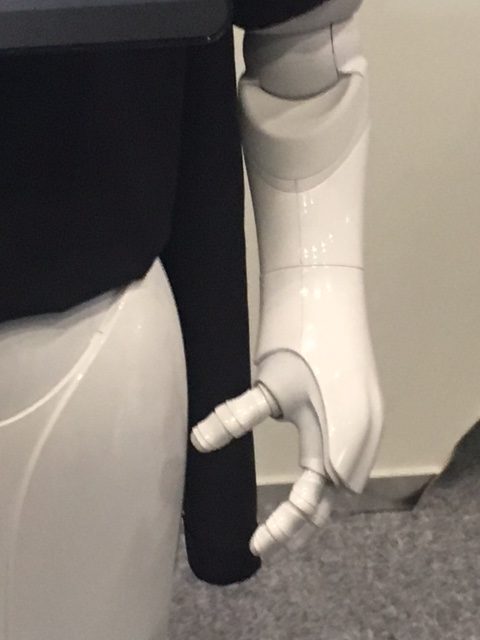
Well, I wasn't expecting THAT!
This whole month, I want to talk about the relationship between writing and reading. I’ve talked to so many writers who say they don’t read inside their own genre because they’re afraid of copying someone else’s idea. (More on this later – I’m planning an entire post on genre as a conversation.) Or they don’t want to read older titles, because they consider them no longer relevant. But one thing reading extensively in your genre – ideally a mix of new releases and backlists — does is allow you to understand the tropes and conventions, and the way those elements are changing. And when you understand them, then you can start to play with them in ways that will surprise and delight readers. Because let’s face it – even if you haven’t read the foundational titles in your genre, they probably have.
Tropes and Conventions as Shorthand
Trope — “A common or overused theme or device : cliché.” – Merriam Webster Dictionary
Genre Conventions – distinguishing elements that identify a book as belonging to a given genre. Can include a particular setting (such as space or the old west), character types (ex. the nosy amateur detective or the femme fatal), and technical codes (as in first person confessional style, or whiplash plot twists).
Codes – “Codes are systems of signs, which create meaning. Codes can be divided into two categories – technical and symbolic. Technical codes are all the ways in which equipment is used to tell the story in a media text, for example the camera work in a film. Symbolic codes show what is beneath the surface of what we see. For example, a character’s actions show you how the character is feeling.” — http://media-studies.tki.org.nz
Readers come back to a genre because there are certain elements they love about it, and they expect to see those basics. If they’re reading a romance, they expect there’s going to be a Happily Ever After (or at least a Happily Enough for Now). If they’re reading a mystery, they expect that there will be a puzzle that they can follow along to solve.
As a writer, you can make this work for you. Those built-in expectations mean you don’t have to spend time in the manuscript spelling those things out. You can instead spend that word count developing the specifics that make your book and its world unique. It’s like shorthand. You introduce something familiar, and the reader is going to start trying to figure out where you are going with it. (This can actually mess with your pacing, if your readers have figured out the concept – time travel, cloning, or whatever – far before the characters “get it.” It can feel like either you are drawing it out too long just to mess with the reader, or that the character is out of touch with the world in which he lives.)
If this is such a useful tool, then why is the word trope so often considered negative? The danger is when you give the reader EXACTLY what they expected. I know that sounds contradictory, but think about it. They came to the genre to get what they expected, but they came to your book to get something new. If they wanted InsertNameOfHugelyPopularlyGenreAuthorHere, they would just go read that author’s backlist. If you stick with regurgitating what you’ve already read, you’re constantly going to be compared with HugelyPopular, and it will be hard to do it so much better enough that you don’t get the word “derivative” attached to your work. BUT, you’ll stand out if you write within the genre’s conventions – or skirt the edge of those conventions – while re-interpreting the shorthand into something exciting or odd or thought-provoking.
Who knows? You could even wind up creating a new sub-genre.
Sometimes, the easiest way to do this is introduce a trope – knowing it is an overused plot device – but then play with it.
Playing with Tropes
There are a number of ways to tease audience expectations.
Invert the Trope – This is where you take the overused thing and flip it on its head. The robot turns out to be more human than the cold humans surrounding it. The femme fatal turns out to BE the detective. The mentor character is a child.
Subvert the Trope – You set us up for the trope –and then you take the plot somewhere completely different. You put two characters together with a source of conflict between them and give them a meet cute – and the one of them turns out to be a villain. Or we think the butler did it, but it turns out he was framed. (There is sometimes another twist, after which we get the original trope after all.)
Turn The Trope Into a Metatrope – The characters know about the trope (you know – they read). Or they realize they are in a story requiring the trope. Or in some way, you use the trope to make an ironic point. This may require breaking the fourth wall. (See also what I said HERE about metafiction.)
Present the Trope with Humor – You can parody or exaggerate the trope, or even play the trope straight with a humorously inept character. The character is enrolled in a school for orphans who want to change their fortunes. The mentor character’s death is a joke the first time – and the second time – but he really dies the third time.
Justify the Trope or take it to Extremes –You choose to explain WHY the trope works in your world. Or you show how illogical the trope really is by taking it a few steps too far. Villains HAVE to monologue, as part of their group code. The hero training montage seems to have worked – until the trainee has to face a REAL expert.
Some of my favorite books use these techniques. Do any of yours?
Take the robot in the image at the beginning of this post. One robot trope — probably the expected one — is that when robots become smart enough, they become dangerous to humans. (Psychologically, we’re talking about a number of primal fears — being overwhelmed by technology, of obsolescence, of something alien becoming so human that we can’t distinguish the “real” from the artificial — that robots often represent.) What if, instead of putting a weapon it that robot’s hand (or having said robot use that hand as a weapon), you filled that waiting grip with a bunch of flowers? The audience is expecting violence — it is a fresh surprise to give them friendship. Or if instead of taking over humankind (because, uh, why) robots instead became obsessed with becoming the best acrobats ever and just took over all the circuses? Or maybe they wanted to stage the robot revolution, but they were just so bad at understanding human psychology and defense tactics, and hilarity ensued? Or . . . you try making up one.
Want to learn about other ways to make old ideas fresh? If you are in the Arlington, Texas area, join us for Saturday Night Write on May 19, 4-6 PM at the Flying Fish in Arlington, where we will be discussing New Takes on Old Ideas. As always, it’s free and open to all.
NOTE: Image taken in 2017 at the CETAC Tech fair in Chiba, Japan.

